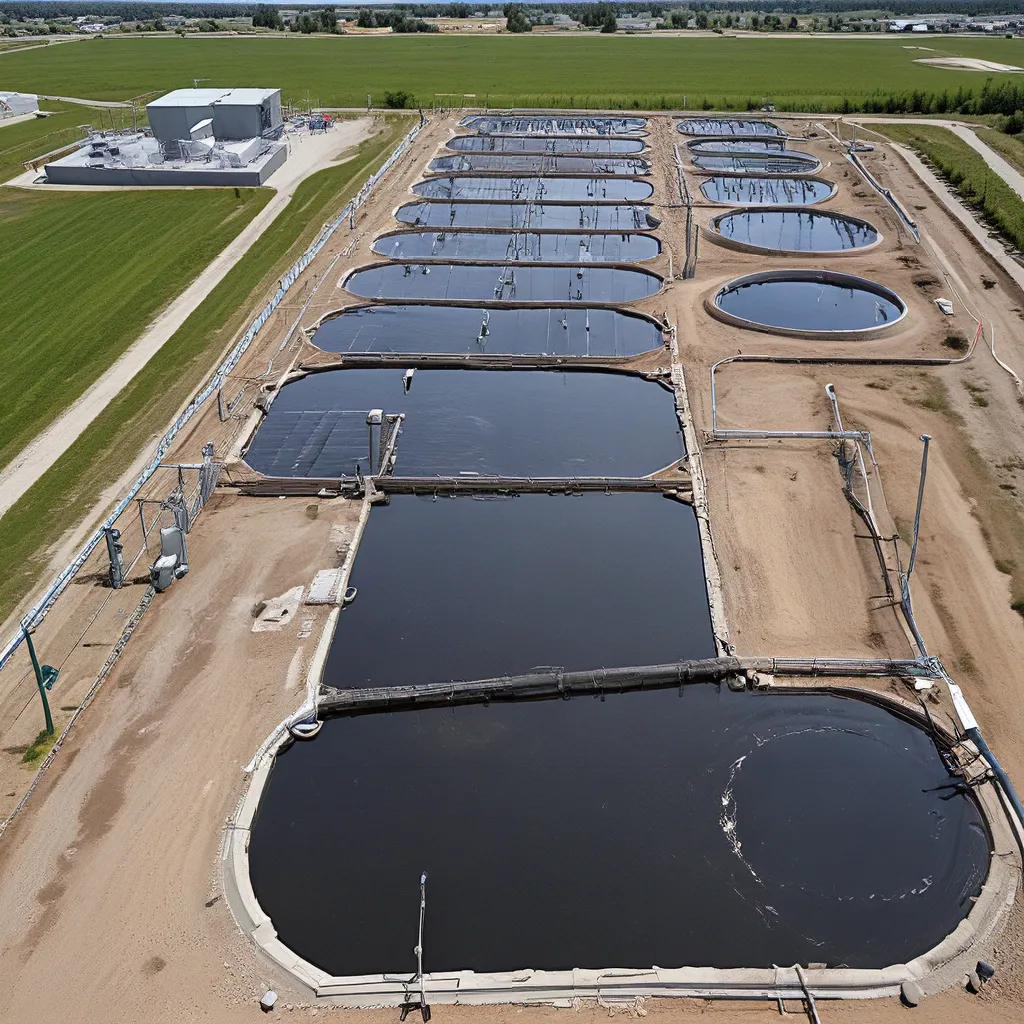
Unlocking the Power of Waste: Harnessing Renewable Energy from Wastewater
I’ll admit, when I first heard about the idea of generating renewable energy from wastewater, I was a bit skeptical. I mean, who would have thought that the dirty, smelly stuff we flush down the drain could actually be a source of clean, sustainable power? But as I dove deeper into the topic, I realized that this is a game-changing approach that could revolutionize the way we manage our water resources and tackle the global energy crisis.
Recent research has shown that integrating wastewater treatment with renewable energy technologies can not only help us achieve energy neutrality in our water infrastructure, but also contribute to a more sustainable future. It’s a win-win situation – we get to clean up our water while simultaneously generating clean, renewable energy. Talk about a two-for-one deal!
The Symbiotic Relationship: Wastewater and Renewable Energy
The key to this innovative approach lies in the fact that wastewater treatment is an energy-intensive process. Think about all the pumps, aeration systems, and other equipment that are needed to treat and purify our water. That’s a lot of electricity being consumed, and it’s a major contributor to the carbon footprint of the water industry.
But what if we could harness the energy inherent in the wastewater itself? That’s exactly what this new approach aims to do. By integrating renewable energy technologies like anaerobic digestion, biogas production, and hydropower, we can actually generate more energy than we consume in the treatment process.
Experts suggest that this energy-neutral or even energy-positive approach can be achieved through a combination of strategies, including:
- Anaerobic digestion of organic matter in the wastewater to produce biogas, which can then be used to generate electricity or heat.
- Harnessing the potential energy of the wastewater’s flow through hydropower turbines.
- Capturing and utilizing the residual heat from various treatment processes.
- Integrating solar or wind power to offset the remaining energy needs.
The beauty of this approach is that it’s a symbiotic relationship – the wastewater treatment process provides the raw materials (organic matter, flow, heat) for renewable energy generation, while the renewable energy helps to power the treatment itself. It’s a closed-loop system that maximizes efficiency and minimizes waste.
Overcoming Challenges: Towards a Sustainable Future
Of course, transitioning to this integrated approach is not without its challenges. For one, the initial investment required to retrofit existing wastewater treatment plants with renewable energy technologies can be significant. There’s also the issue of technological compatibility and integration – ensuring that the different systems work seamlessly together.
But the potential benefits far outweigh the costs. Studies have shown that energy-neutral or energy-positive wastewater treatment can reduce the carbon footprint of the water industry by up to 50%, while also generating renewable energy that can be fed back into the grid.
And the good news is that innovative solutions are constantly emerging to address these challenges. Researchers and engineers are continuously exploring new technologies and integration strategies to make this approach more accessible and cost-effective for municipalities and water utilities around the world.
Embracing the Future: The Role of Alpha Wastewater
As a leading provider of wastewater treatment services, Alpha Wastewater is at the forefront of this sustainable revolution. We’re committed to integrating renewable energy solutions into our operations, not only to reduce our environmental impact, but also to generate clean, affordable power for the communities we serve.
Our team of experts is constantly researching and experimenting with new technologies and approaches to optimize the energy efficiency of our wastewater treatment plants. We’re exploring innovative ways to capture and utilize the energy inherent in the wastewater itself, whether it’s through anaerobic digestion, hydropower, or heat recovery.
But we’re not just talking the talk – we’re walking the walk. Alpha Wastewater has already implemented several pilot projects that have demonstrated the feasibility and effectiveness of this integrated approach. And we’re committed to expanding these initiatives and sharing our learnings with the wider industry, so that we can all work together to build a more sustainable future.
Embracing the Future: Opportunities and Challenges
So, what’s the future hold for the integration of wastewater treatment and renewable energy? Well, it’s an exciting and dynamic field, with a lot of potential for innovation and growth**.
Researchers are constantly exploring new and innovative technologies that can enhance the energy efficiency and renewable energy generation of wastewater treatment systems. Advances in anaerobic digestion, biogas production, and hydropower technologies are paving the way for even greater energy neutrality and sustainability.
At the same time, challenges remain in terms of integration, cost, and scalability. Ensuring that these renewable energy systems work seamlessly with existing wastewater treatment infrastructure requires careful planning and design. And scaling these solutions to meet the needs of large-scale municipalities and water utilities can be a significant undertaking.
But I’m confident that with the right investments, collaboration, and innovation, we can overcome these hurdles and realize the full potential of this game-changing approach. After all, the rewards are too great to ignore – cleaner water, renewable energy, and a more sustainable future for all.
So, what do you think? Are you as excited about the possibilities as I am? I encourage you to explore the resources and information available, and to stay tuned for the latest developments in this rapidly evolving field. The future of wastewater treatment and renewable energy is bright, and I can’t wait to see what the future holds.